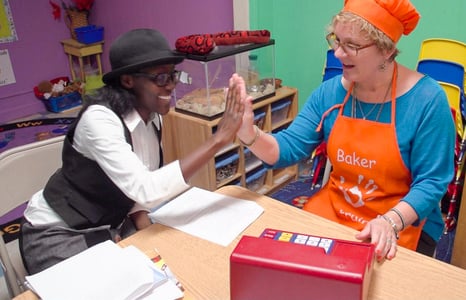
“Show. Don’t tell,” said every writing teacher ever. And just as common was students’ response: “Why?”
Whether describing a setting sun or explaining CLASS® dimensions, I’ve always found it easier to just tell. But I’ve never found it as effective as showing. That’s why I am especially excited regularly talk with folks who support educators’ growth about how to interact in ways that help show them the kinds of effective interactions we want them to have with kids. We call this kind of explanation "parallel process."
What is parallel process?
Good question! Parallel process is when we interact with educators in the same ways we expect them to interact with children. It’s a way to show what we mean by things like “contingent response” or “feedback loops” by demonstrating them with those you work with.
Parallel process can also help us reflect on how we interact with teachers. Even though the CLASS® focuses on educator-child interactions, there are many parallels to adult learning; one example comes from research on behavior change that “suggests that people are more likely to make changes when feedback comes from a trusted and respected source.”
Isn’t that what Emotional Support is all about? Shouldn’t we also strive to be productive and engaging as we work with educators? Shouldn’t we provide feedback that clarifies and extends teachers’ understanding?
Parallel Process Can Help You...
- Emotionally support educators who seem resistant to change
- Remain productive while still emotionally supporting educators who are going through tough times
- Clarify and extend an understanding of meaningful educator-child interactions
Watch how my colleague, Erin Sabina, sums up the power of parallel process in a presentation on how leaders and coaches can support their teams.
Learn More about Coaching
If you’re interested in learning ways to coach on the power of effective interactions, check out our webinar recording, Coaching the Coaches: A Strategic Investment for Better Teaching Outcomes. In it, you'll learn more about the impact that coaching can have on educators growth, and specific coaching programs that will help you explain and model the interactions that make a difference in educators' and children's lives.
